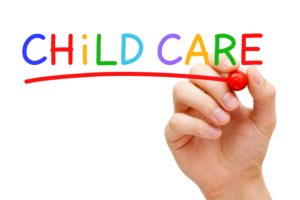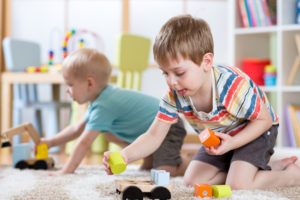 Children’s brains grow and develop 85% of their full capacity by the time they are 5 years old, according to new advances in neural development. Whether your children are in voluntary preschool, kindergarten, day care centers, or home-schooled, this is an absolutely crucial time for development. One of the best things we can do for our children during this time, aside from active learning interactions, is provide them with healthy snacks that encourage brain growth and development. Here are some kid-friendly brain foods to give your child an extra boost.
Children’s brains grow and develop 85% of their full capacity by the time they are 5 years old, according to new advances in neural development. Whether your children are in voluntary preschool, kindergarten, day care centers, or home-schooled, this is an absolutely crucial time for development. One of the best things we can do for our children during this time, aside from active learning interactions, is provide them with healthy snacks that encourage brain growth and development. Here are some kid-friendly brain foods to give your child an extra boost.
- Oatmeal: This is a common meal in many day care centers. Most kids and toddlers love oatmeal, and it’s not hard to see why. Oatmeal is a delicious and nutritious substitution for sugary cereals. It’s full of fiber to curb your kid’s junk food cravings and has plenty of vitamins E, B complex, and zinc to help kids focus. Oatmeal is great because it can be easily paired with any variety of nuts and fruits for an extra nutritional boost.
- Berries: Strawberries, blueberries, blackberries and cherries are all great sources of vitamin C and antioxidants. Their seeds also contain omega-3 fats that benefit brain function. When selecting berries, keep in mind that a darker, more intense color means more nutritional value.
- Beans: Beans are one of nature’s most powerful superfoods. Aside from being full of fiber, beans are also packed with protein, complex carbs, and omega-3 fatty acids — all essentials for healthy brain growth and development.
- Milk and Dairy: Dairy products generally contain a lot of vitamin B, which aids in brain tissue growth. Milk, yogurt, and cheese are all great sources of vitamin D, protein, and calcium as well. Keep in mind that some yogurts have high amounts of sugar, so be cautious and read labels before making final selections.
Day-to-day nutrition moderation is an important aspect of infant care and child care. Today, approximately 11.3 million children are left to take care of themselves after they get home from school. If enforced at an early age, these smart eating habits can stick with kids and really make a difference in creating a healthy future.


 Approximately 23.4% of children under the age of five are enrolled in some form of child care arrangement, including having a nanny or being in daycare. What many parents don’t know is that enrolling a child in daycare has more benefits than leaving them with a babysitter.
Approximately 23.4% of children under the age of five are enrolled in some form of child care arrangement, including having a nanny or being in daycare. What many parents don’t know is that enrolling a child in daycare has more benefits than leaving them with a babysitter. Today, less than one-third of children have a full-time, stay-at-home parent. In 1975, more than half of all children had a stay-at-home parent looking after them. More people are working full-time now, which is good, but it’s now more important than ever to make every moment with your kids count. Use the time you are able to be with them as teaching moments.
Today, less than one-third of children have a full-time, stay-at-home parent. In 1975, more than half of all children had a stay-at-home parent looking after them. More people are working full-time now, which is good, but it’s now more important than ever to make every moment with your kids count. Use the time you are able to be with them as teaching moments. Raising a child will simultaneously be the most amazing thing you’ve ever done and the most difficult. There is no one correct way to successfully raise your kids, but there are plenty of wrong ways. A common misconception among parents is that to be effective parents, they need to be with their children all the time and give them whatever they need. This just isn’t true, and it’s far better, for both the parents and the child, to have some separation at some point. Healthy separation allows the child to grow and mature.
Raising a child will simultaneously be the most amazing thing you’ve ever done and the most difficult. There is no one correct way to successfully raise your kids, but there are plenty of wrong ways. A common misconception among parents is that to be effective parents, they need to be with their children all the time and give them whatever they need. This just isn’t true, and it’s far better, for both the parents and the child, to have some separation at some point. Healthy separation allows the child to grow and mature. After school care for your toddlers can be a vital and productive part of not just your child’s day, but of their education, as well. Your kids can learn plenty from child care centers, and although the emphasis during after school care may be slightly less on lessons and more on fun, the learning doesn’t stop when the school day ends. The same is true when you pick up your child. If you’re got a young toddler, here are a couple of things to avoid doing:
After school care for your toddlers can be a vital and productive part of not just your child’s day, but of their education, as well. Your kids can learn plenty from child care centers, and although the emphasis during after school care may be slightly less on lessons and more on fun, the learning doesn’t stop when the school day ends. The same is true when you pick up your child. If you’re got a young toddler, here are a couple of things to avoid doing:
Recent Comments